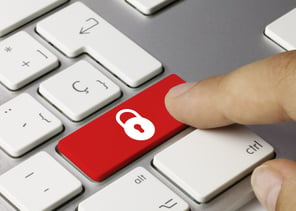 We all use passwords to help protect our computers, smartphones, and online accounts. But, there is no such thing as a perfect password. A committed hacker can crack any password given enough time, the right tools, and the right information. But if a password is strong enough, the hacker will likely get discouraged and give up before it is cracked. Here are a few tips from How-To-Geek and Krebs on Security on how to create a password that is strong enough to foil hackers, but are still easy enough to remember.
We all use passwords to help protect our computers, smartphones, and online accounts. But, there is no such thing as a perfect password. A committed hacker can crack any password given enough time, the right tools, and the right information. But if a password is strong enough, the hacker will likely get discouraged and give up before it is cracked. Here are a few tips from How-To-Geek and Krebs on Security on how to create a password that is strong enough to foil hackers, but are still easy enough to remember.
- First off, 123456, password, and abc123 are some of the most commonly used, and most easily cracked, passwords used today. You should also avoid using passwords that include your name, simple words, 1234 or common keyboard patterns, like QWERTY. The key to a strong password comes down to being creative, unique, and complex. The longer the password the better! If possible, make your password at least 12-15 characters long. Anything over 15 characters becomes particularly resistant to hackers.
- Furthermore, your password strength increases significantly when you use uppercase and lower case letters along with non-alphabetic characters. This includes numbers, punctuation marks, symbols, and even semi-colons and periods. It is recommended that your password include at least 2 upper-case letters, 2 lower-case letters, 2 numbers, and 2 special characters. These unusual characters and numbers make your password less predictable and more unique. To mix things up even further and create the strongest password possible, substitute letters for numbers and numbers for letters. For example, a 3 looks like a backwards ‘E’, a 5 or $ looks like a ‘S’. Other ones are @=a, 1=I, o=0 (zero).
- Lastly, you should rotate or change your password regularly. If you have a hard time remembering your passwords, don’t write them down. Instead, use a password manager. ImOn offers TechHome, which includes Password Genie. Password Genie stores all your passwords, logins, and other important information, keeping you protected and reducing your risk of identity theft.
But remember, a password is no good if you don’t use it. You should make sure to enable an automatic locking screen on your tablet and smartphone. And it is recommended that you logoff, or lock, your computer and laptop every time you are finished or when you are leaving the room. This ensures that if your device is lost or stolen, no one can access it, protecting all of your personal information inside.
